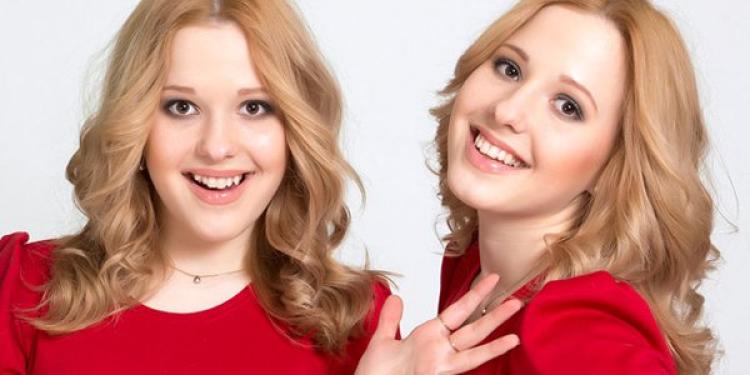Guns, Bombs and Pop Music: Do the Tolmachevy Sisters Stand a Chance in Eurovision 2014?
Posted: May 7, 2014
Updated: October 4, 2017

With Eurovision being more about politics than music, don’t expect Russia’s Tolmachevy Sisters to be judged on the quality of their performance alone.
Get over yourselves people. Eurovision is political. That’s the point. It’s about peace and cooperation and European identity and all of that hippy-ish post-national stuff (as well as a great opportunity to wager with online sportsbooks in the UK). That’s why people can’t vote for the representative of the country they live in. Most of the acts are crap anyway, so people use Eurovision voting to make thinly-veiled political statements.
History is chock-full of examples of the annual glam pop-fest being taken over by politics. During the Cold War the Warsaw Pact countries voted as a single bloc. Small host countries like Estonia get their moment in the political limelight. In 2003 following the UK government’s decision to follow the US into Iraq, European voters punished their maritime neighbor by awarding its contestant Jemini with “nul points.”
Will voters punish Russia?
The UK was punished in 2003 following a foreign invasion. Will Russia face a backlash over its recent annexation of Crimea? If one views Eurovision as a geopolitical contest rather than a music competition, then the answer is yes.
Dr. Derek Gatherer recently put together an in-depth analysis of how Eurovision fans tend to vote, finding three distinct “blocs” which tend to vote together: The Balkan Bloc, Warsaw Pact and Viking Empire. While in ordinary times Russia’s western neighbors would vote for its acts in decent numbers, don’t expect many Poles or Ukrainians to go with Russia this year.
• Eurovision is more about geopolitics than music, as voters often use the contest to make political statements
• In 2003 UK contestant Jemini was punished for Britain’s unpopular decision to invade Iraq
• Russian contestants in 2014 the Tolmachevy Sisters were booed on Tuesday when judges announced that they would advance to the finals
Russia is currently the bad guy in Europe. The European Broadcasting Union (the body in charge of Eurovision) opted not to ban Russia from competing, but it’s unlikely that European voters will look kindly on their menacing neighbor to the East. Eurovision contestants are treated, fairly or not, as official representatives of their country. While they are not political figures themselves, they travel with an official delegation and are associated with their national government.
And the political benefits of a Eurovision victory are obvious. The winning country gets the option to host the next year’s contest. So a victory for Russia’s contestant is by extension a victory for the Russian state. Victories by Spain in 1968, Estonia in 2000 and Azerbaijan in 2011 helped put those countries on the map. While it looks like not much could repair Russia’s image in Europe, the government could potentially spin a Eurovision victory into a propaganda coup.
The Tolmachevy Sisters
Ok, let’s get to the acts themselves. This year Russia trotted out the 17-year old Tolmachevy Sisters, two blonde-haired blue-eyed twins who are about as non-controversial as it gets. No political statements, no nationalistic messages, just two decent if uninspiring singers who are better than most of the Eurovision contestants.
//www.youtube.com/embed/MPI7AnD_QS8
With sugar-coated lyrics like “nothing’s gonna bring me down” and “telling all the world to show some love,” these girls seem to have been created with the express purpose not to piss anyone off.
Author Oliver Lepold speculates that Russia chose the Tolmachevy’s in part due to their inoffensive demeanor: “Every Russian entry for 2014 was going to be seen in an especially critical light, so it’s probably not a bad strategy to send in a simple and innocently packaged ‘Message of Love’ – a kind of disarming entry.”
Will the sisters be punished for Putin’s politics?
Two 17-year old pop singers should never be held responsible for the decisions of powerful politicians whom they have no access to. Sure, Europeans are understandably pissed off that Putin and the Russian army spread their tentacles westward and seized territory belonging to Ukraine, a country which once had EU accession hopes. But it’s surely not fair to blame the Tolmachevys.
And the girls have made the list of ten finalists. However, members of the live audience booed upon the announcement that the girls would advance to the finals. Booing 17-year old girls is a little harsh, but like we said, Eurovision is political. While a few fans certainly booed because they weren’t impressed with the Tolmachevy’s performance, it looks more like the sisters are being punished for their country’s politics.
They have made it this far, but we consider it unlikely that they will win the contest. Gambling news currently has SannaNeilsen of Sweden with the highest chance of winning. Russia won’t be hosting Eurovision next year.












